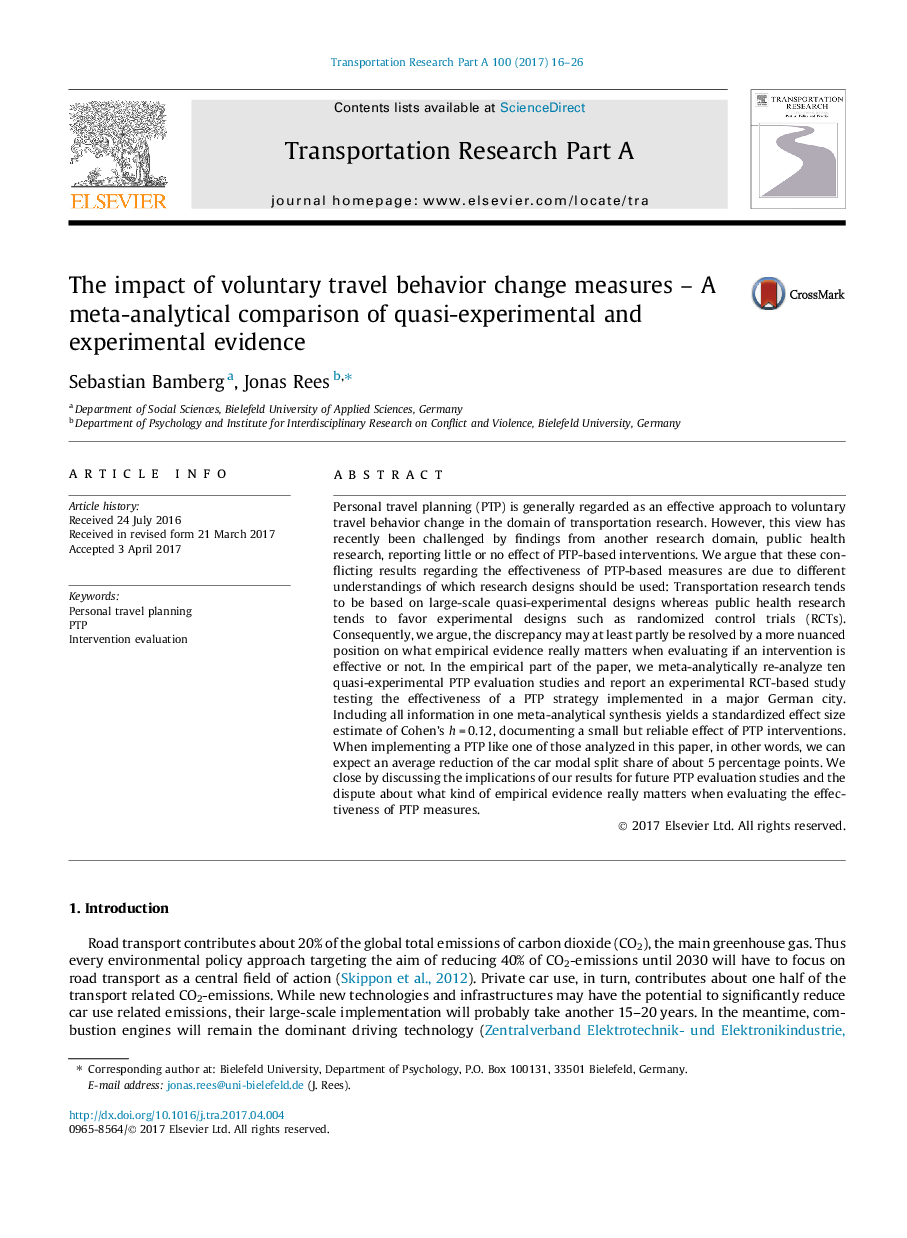| Article ID | Journal | Published Year | Pages | File Type |
|---|---|---|---|---|
| 4928958 | Transportation Research Part A: Policy and Practice | 2017 | 11 Pages |
Abstract
Personal travel planning (PTP) is generally regarded as an effective approach to voluntary travel behavior change in the domain of transportation research. However, this view has recently been challenged by findings from another research domain, public health research, reporting little or no effect of PTP-based interventions. We argue that these conflicting results regarding the effectiveness of PTP-based measures are due to different understandings of which research designs should be used: Transportation research tends to be based on large-scale quasi-experimental designs whereas public health research tends to favor experimental designs such as randomized control trials (RCTs). Consequently, we argue, the discrepancy may at least partly be resolved by a more nuanced position on what empirical evidence really matters when evaluating if an intervention is effective or not. In the empirical part of the paper, we meta-analytically re-analyze ten quasi-experimental PTP evaluation studies and report an experimental RCT-based study testing the effectiveness of a PTP strategy implemented in a major German city. Including all information in one meta-analytical synthesis yields a standardized effect size estimate of Cohen's h = 0.12, documenting a small but reliable effect of PTP interventions. When implementing a PTP like one of those analyzed in this paper, in other words, we can expect an average reduction of the car modal split share of about 5 percentage points. We close by discussing the implications of our results for future PTP evaluation studies and the dispute about what kind of empirical evidence really matters when evaluating the effectiveness of PTP measures.
Keywords
Related Topics
Physical Sciences and Engineering
Engineering
Civil and Structural Engineering
Authors
Sebastian Bamberg, Jonas Rees,
